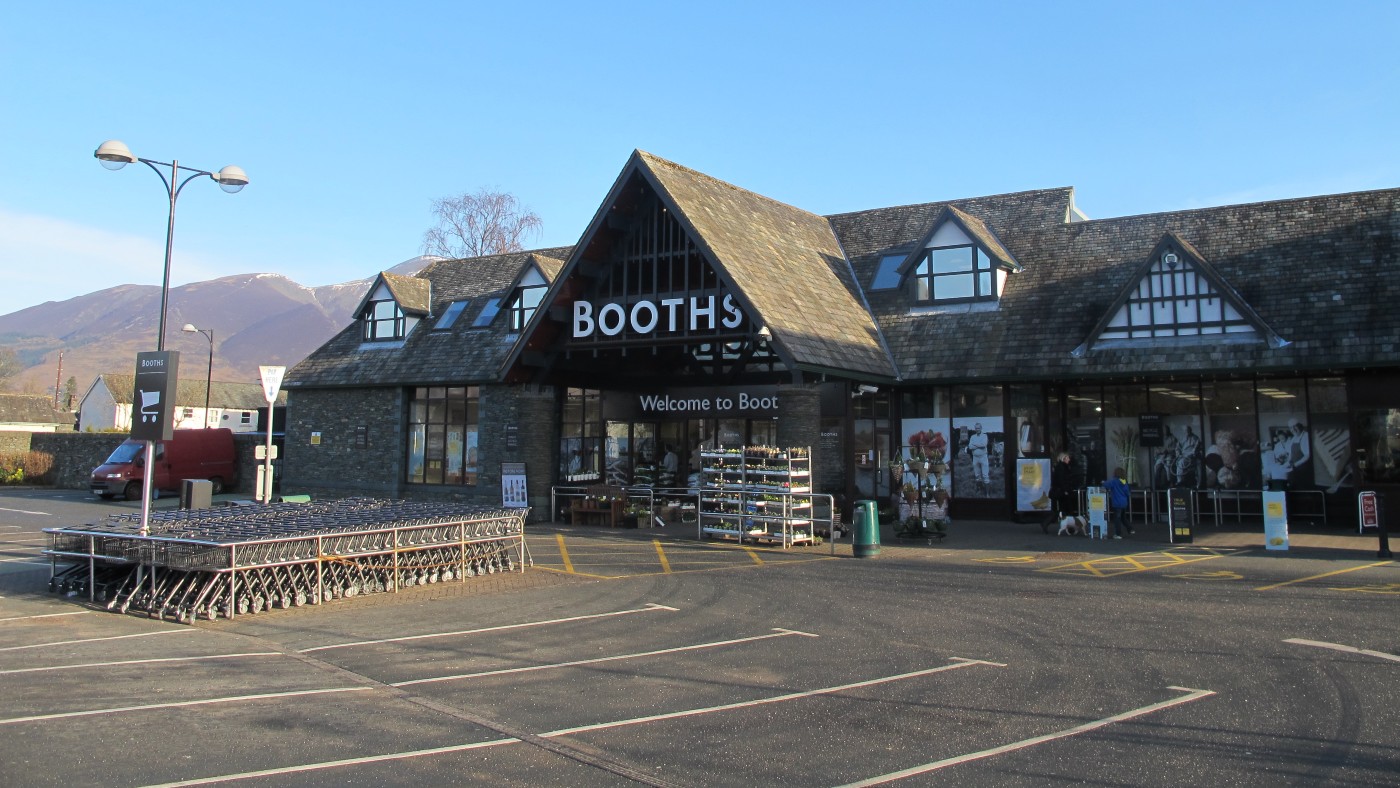Self-service tills: the backlash begins
Booths, the supermarket chain known as the 'Northern Waitrose', has decided to reintroduce humans to the checkout process

A free daily email with the biggest news stories of the day – and the best features from TheWeek.com
You are now subscribed
Your newsletter sign-up was successful
Congratulations to Booths, the supermarket chain known as the "Northern Waitrose", on its "joyous decision" to rip out its self-service checkouts, said Michael Deacon in The Daily Telegraph. By removing the machines from all but two of its 28 stores, Booths is bucking a baleful trend.
It claims that the decision is about customer service, said Claire Moses in The New York Times. "Delighting customers with our warm Northern welcome is part of our DNA," said a spokesperson. But there may be another reason. One study showed that, at stores with self-service tills, shoplifting increases to more than double the industry average: the machines make theft less detectable, and "tempt shoppers to act in ways they normally would not".
'Digital advances have come a little unstuck'
Whatever the reason, it's a blessed relief, said Emily Watkins in The i Paper. For a "supposedly time-saving innovation", automated checkouts certainly waste a lot of time, what with selecting and weighing loose produce, summoning staff to verify your age for booze purchases – and, of course, removing unexpected items from the bagging area.
The Week
Escape your echo chamber. Get the facts behind the news, plus analysis from multiple perspectives.

Sign up for The Week's Free Newsletters
From our morning news briefing to a weekly Good News Newsletter, get the best of The Week delivered directly to your inbox.
From our morning news briefing to a weekly Good News Newsletter, get the best of The Week delivered directly to your inbox.
There are many areas of life in which "supposed digital advances have come a little unstuck", said Stefano Hatfield in the same paper – opening the door for the old ways to return. Vinyl record sales have surged; UK publishers sold a record 669 million physical books last year; some banks are pledging to maintain bricks and mortar branches; and plans to close railway ticket offices in England have just been abandoned. These are all signs of "a yearning for analogue simplicity".
'Costing more in the long run'
No wonder, said Rod Liddle in The Sunday Times. Over the past 20 years, automation has saved business and government a lot of money. My suspicion, though, is that it will end up "costing us all a lot more in the long run". Increasingly, we have to conduct business "via (fairly stupid) robots". We shop online, "so we don't even have to see other people, let alone interact with the bastards".
This changes our behaviour: just look at the "psychotic rage" you so often see on social media, which you'd never get face to face. Loss of human contact "encourages us to shed civility and inhibitions", at the supermarket till and "everywhere else".
A free daily email with the biggest news stories of the day – and the best features from TheWeek.com
-
 Why is the Trump administration talking about ‘Western civilization’?
Why is the Trump administration talking about ‘Western civilization’?Talking Points Rubio says Europe, US bonded by religion and ancestry
-
 Quentin Deranque: a student’s death energizes the French far right
Quentin Deranque: a student’s death energizes the French far rightIN THE SPOTLIGHT Reactions to the violent killing of an ultraconservative activist offer a glimpse at the culture wars roiling France ahead of next year’s elections
-
 Secured vs. unsecured loans: how do they differ and which is better?
Secured vs. unsecured loans: how do they differ and which is better?the explainer They are distinguished by the level of risk and the inclusion of collateral
-
 Health insurance: Premiums soar as ACA subsidies end
Health insurance: Premiums soar as ACA subsidies endFeature 1.4 million people have dropped coverage
-
 Anthropic: AI triggers the ‘SaaSpocalypse’
Anthropic: AI triggers the ‘SaaSpocalypse’Feature A grim reaper for software services?
-
 Currencies: Why Trump wants a weak dollar
Currencies: Why Trump wants a weak dollarFeature The dollar has fallen 12% since Trump took office
-
 Elon Musk’s starry mega-merger
Elon Musk’s starry mega-mergerTalking Point SpaceX founder is promising investors a rocket trip to the future – and a sprawling conglomerate to boot
-
 TikTok: New owners, same risks
TikTok: New owners, same risksFeature What are Larry Ellison’s plans for TikTok US?
-
 Will SpaceX, OpenAI and Anthropic make 2026 the year of mega tech listings?
Will SpaceX, OpenAI and Anthropic make 2026 the year of mega tech listings?In Depth SpaceX float may come as soon as this year, and would be the largest IPO in history
-
 Leadership: A conspicuous silence from CEOs
Leadership: A conspicuous silence from CEOsFeature CEOs were more vocal during Trump’s first term
-
 Ryanair/SpaceX: could Musk really buy the airline?
Ryanair/SpaceX: could Musk really buy the airline?Talking Point Irish budget carrier has become embroiled in unlikely feud with the world’s wealthiest man